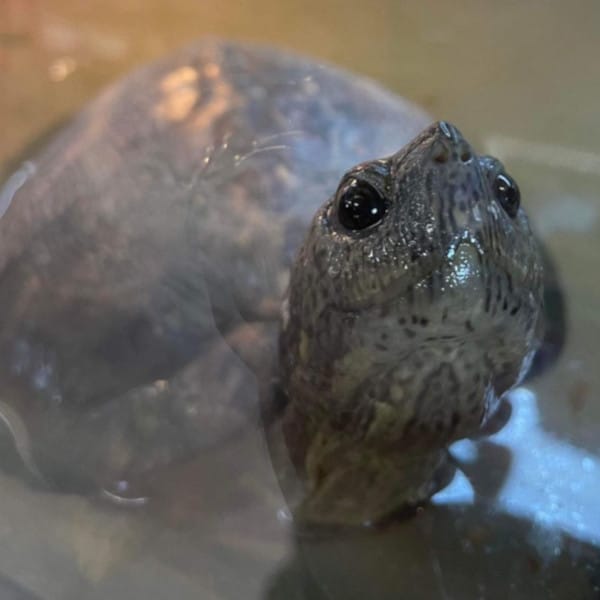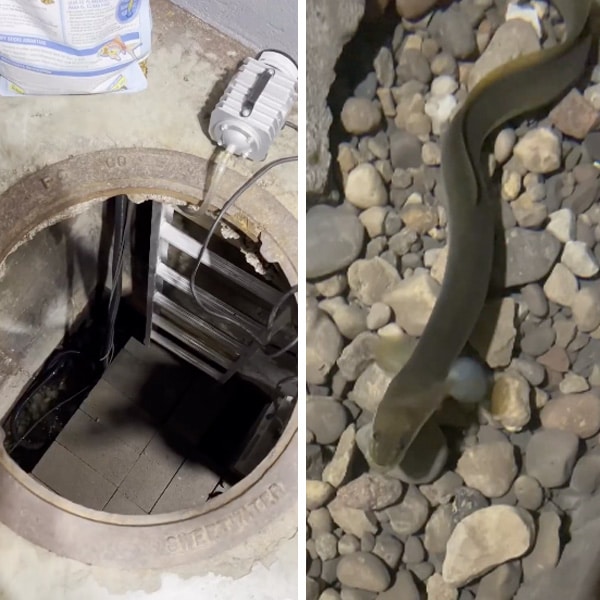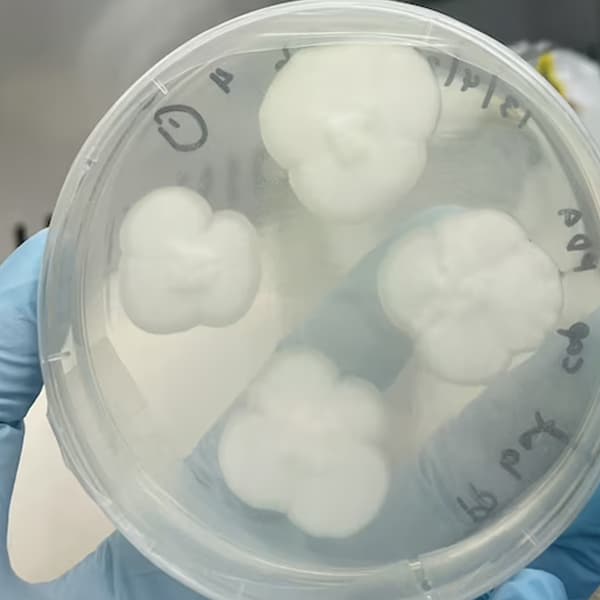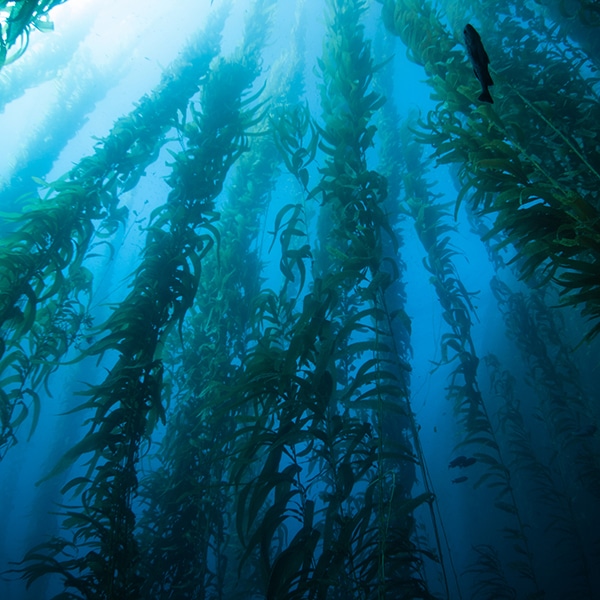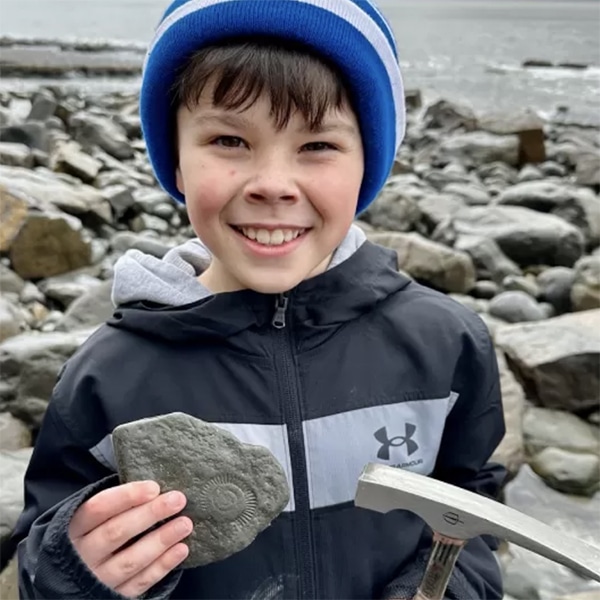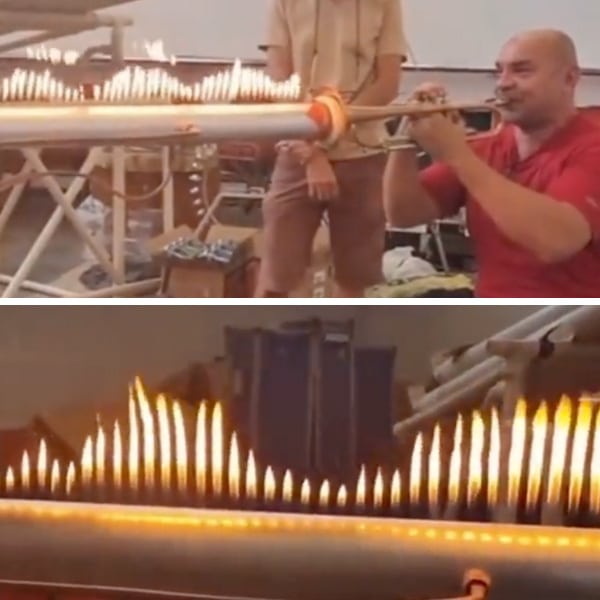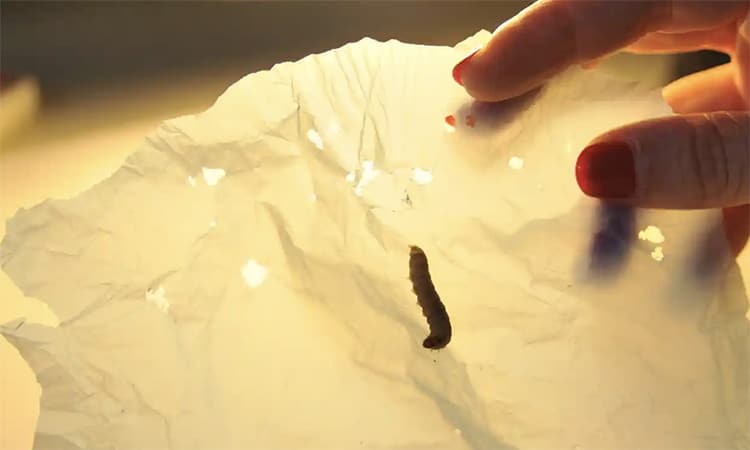
A wax worm eats plastic. (Photo: CSIC Communications Department/PA)
A scientist was tending to her amateur beehives one day when she noticed something strange. She had removed a bunch of wax worms—larvae that live in beehives and feast upon the wax combs—and placed them in a plastic trash bag. Strangely, the bag was now full of holes. “We found it wasn’t only chewing,” Dr. Federica Bertocchini from the Biological Research Centre in Madrid recalls, “it was [chemical breakdown], so that was the beginning of the story.” It turns out the worms have powerful enzymes in their saliva which can rapidly degrade polyethylene, a type of plastic. Researchers who published their findings in Nature Communications trumpeted this exciting development which may contribute to solving the plastic waste problem.
Researchers investigated the phenomenon and discovered 200 proteins in the worms' saliva. Of these, two enzymes appear to be the agents which break down polyethylene.
Recycling plastic involves breaking polymer chains, a difficult process which usually requires heat. However, these worm enzymes work at room temperature and bore holes in plastic bags in only hours. “This study suggests insect saliva might [be] a depository of degrading enzymes which could revolutionize the bioremediation field,” the researchers state. They are hopeful that the enzymes can be synthesized in affordable, mass-produced ways. Someday, home kits to disintegrate plastic may also be feasible. Once broken down, the degraded plastic can be reconstituted and recycled for other uses, saving the planet from further refining oil into plastic.
Enzymes in the saliva of the wax worm, scientifically known as Galleria mellonella, break down plastic.
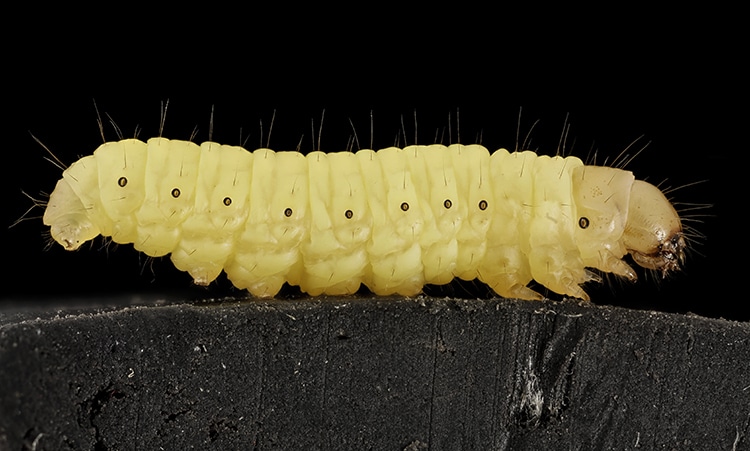
A wax worm, or Galleria mellonella. (Photo: Wikimedia Commons, Public domain)
h/t: [The Guardian]
Related Articles:
California Law Begins to Phase Out Single-Use Plastics
College Students Found Company to Turn Glass Into Sand and Rebuild Coastline
Floating Contra-Rotating Wind Turbines That Can Produce Double the Energy
Scientists Create Device To Turn Moisture in the Air Into Hydrogen Fuel













































































